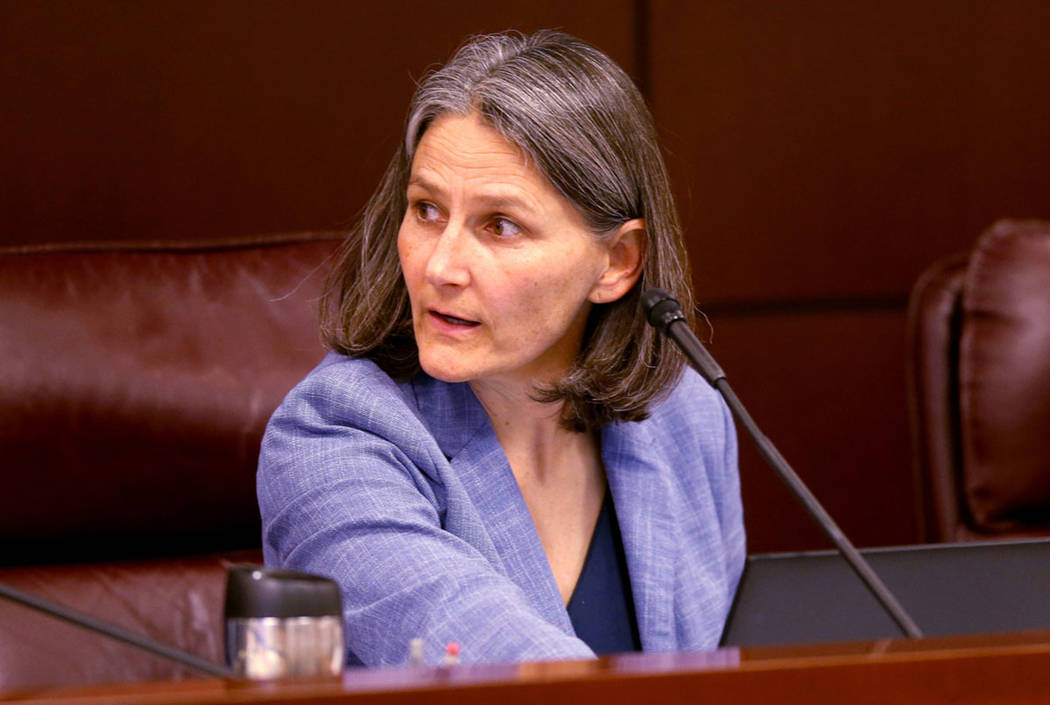STEVE SEBELIUS: Good news, bad news on PERS secrecy bill
When we last left Senate Bill 224, it would arguably have made confidential the names of every public employee who was a member of the Public Employees Retirement System.
Since then, the bill was amended so it would explicitly apply only to retirees. But that version would still have kept the names of retirees secret. Other information — including years of service, last public employer and retirement date — would have remained public.
Flash forward to Friday’s second-house committee passage deadline, the “depression” period in the five stages of legislative grief.
SB224 came up in the Assembly Government Affairs Committee. The good news? The committee amended the bill to make the names of retired government workers public. The press and public accountability groups had asked for this from the start.
Why? The public is the ultimate boss of government employees, and the boss has the right to know how much employees are paid and how much their pensions are. The public, press and interest groups can play an important watchdog role in looking for abuse in the system, provided they have access to the information.
And a side note: Some have argued PERS information should be confidential just like Social Security is for private-sector workers. The difference is that private-sector workers are paid by private companies with private dollars. Public-sector workers are paid with tax dollars.
As you might have surmised, however, there is some bad news to accompany the good.
The committee also amended the bill to make confidential years of service information, along with a retiree’s last public employer and retirement date. This means only a retiree’s name and pension would be public, and everything else would be confidential. That includes the information a person would need to determine whether a pension amount is appropriate or whether there might be fraud or abuse.
Assemblyman Edgar Flores, D-Las Vegas, the chairman of the Government Affairs Committee, could not be reached for comment on Friday. But one potential justification for hiding this information came up at a hearing in the Senate. Sen. Pete Goicoechea, R-Eureka, noted that in smaller rural communities, knowing a person’s last public employer and retirement date might be enough for people to guess the identity of a retiree, thus defeating the reason for masking a retiree’s name.
True enough. But because the bill was amended on Friday to explicitly make names public, there’s little justification for making the rest of the information private.
The bill’s author, Sen. Julia Ratti, D-Sparks, had noble motives for introducing the legislation this session (and in 2017, when Gov. Brian Sandoval vetoed her bill). Ratti says she wants to keep retired public workers from being targeted by people who use public records to scam seniors who have money.
But because the most recent amendment makes a person’s name and pension amount public, there’s even less of an argument to keep the balance of the information private.
For the record, nobody has a problem keeping personal information, such as Social Security numbers and addresses, confidential.
SB224 now heads to the Assembly floor, where it’s likely to pass. (Republicans either voted against the bill in committee Friday or said they might do so on the floor.) That means the bill’s ultimate fate will be in the hands of Gov. Steve Sisolak, who has embraced transparency in his administration.
We’re about to see how deep that commitment runs.
Contact Steve Sebelius at SSebelius@reviewjournal.com or 702-383-0253. Follow @SteveSebelius on Twitter.























